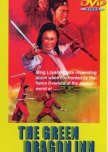
The righteous official upholding the law in this movie was played as stiffly and unemotionally as possibly by Yueh Hua, whose stony expression never changed. Fortunately, Lo Lieh swaggered onto the scene as an interested party, with a more compelling performance and kung fu. Polly Ling-Feng Shang-Kuan (yep, that's her whole stage name) popped in from time to time to shake things up with her sword and kung fu. This trusted trio bravely vowed to uphold the law in the face of overwhelming numbers.
With the exception of Polly's and Lo's, the fights felt overly staged at times, but were entertaining enough. The action was fairly non-stop. Oftentimes the story is overlooked, Green Dragon Inn's was simple but engrossing. This movie had a bad case of "run out of film" ending. If you watch a lot of martial arts movies, especially Shaw Brothers, you'll know what I'm talking about.
Green Dragon Inn had two problems that had nothing to do with the story or acting. In the version I watched the film had been ruthlessly cut to fit different screens. Much of the action, fighting and reaction shots were missing if they happened near the edges. This version was also dubbed. I'm pretty sure the same guy voiced all of the men's lines. As bad as dubbing is, in this situation, subbing would have been worse as the words would have been cutoff. I've seen movies where that happened and it was very frustrating. This movie is good enough with a famous enough cast to be remastered and restored to its former glory.
If you enjoy martial arts movies, especially from Taiwan, this is a good one to try. Even with the problems I mentioned, Green Dragon Inn was still a fun way to spend 90 minutes.
*As always, I grade these older niche movies on a curve.
Was this review helpful to you?
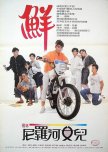
This review may contain spoilers
Hou Hsiao Hsien takes a look at a 1980's family living on the edge of Taipei's neon nights. At turns, frustrating, sympathetic, maddening, and understandable this fractured family is largely held together by the eldest daughter, Lin Hsiao Yang.Lin Hsiao Yang (Yang Lin) has a short temper, works at Kentucky Fried Chicken during the day and takes classes at night school. When she's not busy making money and trying to better her life, she hangs out with her friends and tries to steer her older brother and younger sister away from stealing. Their father pops in and out, usually when he needs help. A lottery playing grandpa drops by occasionally to deliver food from a squawky daughter-in-law and quirky bon mots.
Lin Hsiao Fang (Jack Kao), the only surviving brother, and his gang try to carve out their own territory by opening a shady restaurant. Unfortunately, one of his crew draws the wrong kind of attention from violent and vengeful men.
Daughter of the Nile's characters are never fully delved into with the possible exception of Hsiao Yang. The cast is large and at times unwieldy. Hou plops the audience down in a strange slice of life drama without explaining or showing us much of what the characters are feeling or thinking. Even when tragedy hits, it's kept at a distance, as are the characters' responses.
I can see and understand the craft that went into the making of Daughter of the Nile, but in the end, I found it largely impersonal and the performances flat. Yang Lin's portrayal of our only dim window into this world came across as shallow when it felt like there should have been more depth to this character caught in almost unswimmable currents. She dutifully empties her bank account to any man in need, without a thought to her own precarious situation. Most characters have few, if any lines, wandering in front of the camera to give some movement to a stagnant and untenable lifestyle.
Daughter of the Nile is an interesting social commentary of the plight of those living on the fringe in the mid-1980's. I only wish Hou had let us into his characters' motivations and feelings so that a real emotional connection could be made to help us understand their lives better.
Was this review helpful to you?
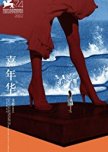
This review may contain spoilers
Writer/Director Vivian Qu delivers a caustic commentary of the treatment of women and young girls in China. Shown primarily from a female perspective she lays bare the inequality of the sexes by a society still focused on a girl's virginity as a primary virtue. And also casts a dark lens on the men who exploit that limited virtue for themselves.Two twelve-year-old girls are lured to a hotel by a powerful middle-aged man and raped. Mia, a young runaway working at the motel sees him break into the girls' room. Director Qu takes a risk in not having one protagonist, but two. One of the twelve-year-olds, Wen, was already suffering at school as a child of divorced parents. Qu largely focused on her experience as well as Mia's quandary of not wanting to help for fear of losing her job. Mia comes across as self-serving and hyper focused on her own survival, always one step away from homelessness. Wen must not only deal with her own experience but also her mother's response and the adults who should be protecting her but don't. The only two people seeking justice are Wen's father and her lawyer.
Warning! What follows may have spoilers...
The performances are spare but powerful. There are no histrionics, no sobbing uncontrollably and screaming. The girls and the lawyer know they are fighting a battle that will likely not be won, but keep moving forward, keep enduring, keep fighting.
Set against the backdrop of an ocean vacation town, with a giant statue of Marilyn Monroe, the seedy happenings were not done in the dark corners but in plain sight making it even more disturbing. It feels like Qu was able to shine a light without the censors cracking down because she might have been alluding to the Western influences of the objectification of women in the statue and possibly in all of the brides dressed in Western wedding gowns having their pictures taken on the beach as a source of the problems. But Western influences did not cause a powerful middle-aged man to rape two children. Or cause the corrupted police force and medical community to cover it up. Or cause a mother to blame her daughter for what happened. Or cause other parents to profit off of their daughter. Or leave a runaway without a safety net. Or cause an older girl to risk her health, fertility, and life to have a fake hymen implanted. Or cause a teacher to treat Wen as less than because her parents were divorced. These are societal failures for women and girls and Qu did not shy away from showing the toll they take.
Angels Wear White is a difficult movie to watch with no easy answers. It may cause despair and anger on the part of the viewer. But perhaps in giving an unflinching and unsentimental view it knocks down one more brick in the wall separating women and children (regardless of gender) from justice, justice lacking not just in China, but worldwide.
Was this review helpful to you?

This review may contain spoilers
A small neighborhood in Tokyo is turned upside down when two little boys take a vow of silence because they want a television set. Of course, that's not all that's going on with the adult neighbors. Each family unit is facing their own challenges whether retirement is nearing, or a father can't find a job, or when the gossip generated from the have and have nots tears at the fragile fabric of relationships held together by the traditional greeting of "good morning".The focus of the story is two little boys who visit a neighbor's house to watch sumo wrestling on their TV. The neighbors are deemed unseemly, read different, and the boys are forbidden from visiting them anymore. When the boys hold their ground demanding a television the father tells them to be quiet and they decide to take a vow of silence.
The father is afraid that having a television in the house will breed idiocy by drowning out small talk which is the "lubricant" of society. The boys view small talk as idiocy. And around and round they go. The boys' vow of silence creates ripples of discord in the neighborhood when they neglect the customary "good morning" setting up another wave of gossip.
You can see in the English lessons and television, the creeping American influence and Western pressure on the families. The television is not the only problem, a neighbor who buys a washing machine is judged for spending money on a convenience. The shunned family with the television feels compelled to move. The movie not only displays a generational conflict, but a cultural conflict as well.
The small talk the adults value so dearly where love declarations are made through a banal conversation about the weather, also bury resentments, envy and fears. No one questions drinking as a means of escape, or cruel gossiping.
Good Morning was bolstered by the young actors' sweet performances in their silent war. A spare, gently comedic slice of life film, showcasing a cast of well-developed minor characters dealing with everyday problems and a changing world was quite entertaining.
Was this review helpful to you?
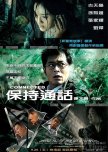
This review may contain spoilers
Connected was an emotional thriller from beginning to end. A remake of the US movie, Cellular, Connected put its own spin on the story. Louis Koo plays an inept debt collector who doesn't spend enough time with his son due to his job. His sister and his son are taking a flight out of Hong Kong and Bob, yes Bob, HAS to be there to send the boy off so as not to disappoint his son one more time. Being a thriller, we already know his trip to the airport is going to have challenges. Barbie Hsu as Grace Wong, throws him the mother of all challenges. She has been kidnapped by unknown villains and managed to use her engineering skills to make a damaged phone work, at least work enough to make a random call. And her one phone call is to timid Bob racing to see his son. Bring in disgraced police officer Detective Fai, played by Nick Cheung and the band is set to find its way together.
Koo connected with his character and managed to show Bob's development from coward to reluctant hero. Cheung's performance sold an otherwise weakly drawn character. Sadly, Hsu had to make the most out of being a damsel in distress, she was brilliant and resourceful, but still in distress and desperate for Bob's help. Liu Ye was able to make the cartoonishly evil Big Bad entertaining. Motorola should have gotten a supporting role as much as the phones had loving closeups.
Connected started and ended strong, the middle had a couple of slow spots, but overall, the pacing and nerve-racking action stayed pretty consistent. As with a lot of movies of this nature there was a great deal of predictability unless it was your first thriller. It didn't take much to connect the dots, thankfully, the trip between each turning point, even when implausible, kept the story moving at least at 3G speed. And along the way Grace and Bob, who were unable to see each other as they talked, managed to connect emotionally as well, a difficult task when both were facing death over and over.
I found Connected to be entertaining with strong performances. My only complaint, other than a few unbelievable bits is that it ran too long. It's worth giving a try, you can always hang up on it if it's not your thing, I kept Grace and Bob on the line until their conversation was over.
Was this review helpful to you?

This review may contain spoilers
The Korean peninsula hangs in the balance when a volcano on the Chinese border threatens to blow everything sky high! Luckily, for both Koreas, Ha Jung Woo and Lee Byung Hun are on the job!Ashfall is an entertaining disaster and spy thriller flick that doesn't try to take itself too seriously. It has all the characters one would expect in a catastrophic volcano movie. Ha Jung Woo plays The Hero who is supposed to be retiring from his EOD squad (Explosive Ordnance Disposal), instead he's leading a group into North Korea to steal a nuclear bomb to stop the volcano from making rubble out of Korea. Along the way, he has to pick up a North Korean agent/double agent/triple agent?, the always cagey Lee Byung Hun, as The Anti-Hero, who has been jailed in a NK prison. Easy peasy, right? Back home giving them support is, Ma Dong Seok, going against type as The Scientist Who Warned Them All and Jeon Hye Jin as the Politico Who Gets It. Bae Suzy also throws in with the scientist as The Hero's Resourceful Pregnant Wife.
Ashfall actually feels more like a spy thriller film with a cranky volcano in the background. Our plucky band has to deal with betrayals and comes under fire from various political powers that don't want them getting their hands on a nuclear bomb for ANY reason and disturbing the power balances regardless of the fact that both North and South Korea are about to be wiped off the map.
The action is non-stop, almost from the first frame and never lets up whether it's fire from the sky or fire fights. As with most disaster movies, you have to let go of reality and just enjoy the ride as nearly everything that happens is implausible.
The heart of the movie is the bromance that develops between The Hero and The Anti-Hero. Lee Byung Hun's character development and the friendship he grudgingly develops with Ha Jung Woo's character brings out the humanity this movie needed as everyone is moving at breakneck speed.
If you are expecting a rational approach to a cataclysmic tragedy in the making, not only for the Korean Peninsula but having an effect worldwide with scientists and world leaders joining hands and acting altruistically and quickly, you're going to be disappointed. If you are expecting vehicles, people, and the starring volcano to obey the rules of nature, you might want to skip this. This is an entertaining, if at times ridiculous, thriller disaster movie set on high drive with a little bit of heart to make it not instantly forgettable.
Was this review helpful to you?
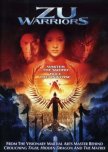
The acting was all serviceable. The problem is that there was no depth to the characters, no moment when we were able to see behind the frozen masks. Everyone was staid and emotionless making it very hard to care about any of them. Ekin Cheng's hair that magically blew in every scene had the most life of any character.
From beginning to end the CGI dominated the movie. Unfortunately, even for 2001, it wasn't very good. The cinematography was awful. The few sets that had any realism were also bad. Even the fight scenes, which did have some interesting moments were too often overpowered by the special effects. Very few scenes were not CGI enhanced which along with the unemotional acting made everything seem distant and cold.
The story had some good ideas and moments. Sadly, too often, it veered into an incoherent mess, seemingly unable to keep up with its own world building and mythology.
If a movie is going to take itself this seriously then it should be well thought out and give us characters to care about. Or it should have the decency to be so bad that it's good. Zu Warriors failed on both counts.
Was this review helpful to you?

This review may contain spoilers
Coming Home is a nuanced tale of love, forgiveness, guilt, and devotion. Gong Li and Chen Dao Ming give subtly emotional performances as the husband who returns home after being "re-educated" in a camp during the Cultural Revolution and the wife so traumatized by events that she no longer recognizes the man she has been waiting on for years.The film focuses on the three characters of this tragic family. Gong Li gives a heartbreaking portrayal of a woman with uneven mental and emotional capabilities, trapped in the past, and hiding a jarring sacrifice. Once, a school teacher, Yu now can barely function in her small gray world. Zhang Hui Wen takes daughter Dan Dan's emotional journey from self-centered teenager with no memory of her father to a mature young woman in a believable manner. Anchoring the acting and this family, is Chen Dao Ming's father Lu. Burdened with the guilt of having been torn from his family and seeing the wreckage upon his return, he resolutely and gently works to reunite the fragile relationships. Dao Ming's performance is free from over-sentimentality slowly drawing us in with the strength of his craft.
The settings are bleak and gray, focusing all the energy and attention on the actors. The music while adequate, once again, does nothing to distract from the performances and the telling of this sad story.
There are no easy answers for the problems the characters face. Often the best they can hope for is bittersweet acceptance in their resounding displays of love and loyalty.
Was this review helpful to you?
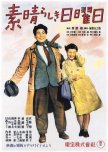
This review may contain spoilers
This is the kind of world where you need dreams the most, without them, it'd be too painful
One Wonderful Sunday was a combination of hope and despair, dreams and nightmares. The story followed two impoverished lovers in post-war Japan trying to stay together even though their financial situations were dire. Moments of happiness were quickly followed by the crushing blow of a sad reality.Yuzo and Masako meet up on Sundays, their one free day of the week. One Sunday, between the two of them they had only 35 yen, a tiny amount even in 1947. Depressed Yuzo was ready to give up on their date day, but bubbly Masako refused to lose out on their time together and pushed him into a happier mood. There were moments of levity as Yuzo played baseball with street children, as the lovers tried to buy tickets to Schubert's "'Unfinished Symphony", and finally a cup of coffee on a rainy night. All ended in disaster. And yet each time they would bolster each other into a better mood, refusing to give up on their seemingly unattainable dreams.
Masako's effervescent mood could quickly turn into nearly hysterical tears. Yuzo could go from sounding suicidal to leaping into an imaginary world as a symphony conductor. Yuzo's poverty left him feeling emasculated as he often declared his inability to provide for and protect Masako made him feel less like a man. Numasaki Isao and Nakakita Chieko gave solid performances covering a wealth of human emotions.
Post war Tokyo with ruined buildings in the background, street children, rampant black market scams, and many English signs hinted at the drastic change and upheaval the citizens were living through.
The movie alternated between a desperate realism and sweet optimism. This 'day in a life movie' focused almost entirely on the two main characters and the actors carried the story forward with strong performances. The two characters, who were often one mishap away from disaster, fought to cling to each other and their dreams.
Ultimately, for me, One Wonderful Sunday's story felt like Schubert's "Unfinished Symphony", romantic and unfinished. The audience is left wondering what will become of Yuzo and Masako, and like the young lovers, hoping for their happy ending.
Was this review helpful to you?

Go Go Gojira!
Go Go Gojira! As fast and as far away as you can from this ridiculous cut and paste movie!All Monsters Attack is actually about a young boy who is bullied at school and daydreams very vividly about Monster Island and his "friend" Minilla/Minya, quite possibly my least favorite character in the Godzillaverse and definitely the creepiest looking.
Robbers are on the loose and no one bothers to lock their doors, even when a child is by himself at night because the parents are working. What's the worst that can happen? Yeah, doesn't matter that it was 1969. These robbers are slightly more tame and inept than those in Home Alone, but it was still disturbing.
The little boy takes what he learns from Minilla/Minya from his daydreams to deal with the robbers and later the bullies. Unfortunately, the ending scene undoes all the anti-bullying rhetoric.
The monsters are all in the little boy's imagination and are just cut and pasted from previous movies. Hondo took a bunch of scenes like Godzilla batting a boulder around with Ebirah (the giant lobster) and added the little boy watching. Most of the chopped up scenes were from Son of Godzilla, Ebirah of the Deep, and a little from Destroy All Monsters. There was one new monster, Gabara, in short scenes to show that Minilla needed to stand up to the bully, just as the young boy needed to stand up to his bullies and the robbers. It pains me that this director from Godzilla 1954 had to stoop so low for either commercialism or to cheaply appeal to the little boy crowd. Rumored to have been scheduled to be the last Godzilla movie it made enough money that they would continue to milk that cow for a few more years targeting the younger audience before rebooting the big guy in 1984 leading into the Hesei era.
If you have children around the age of 8 and they are extremely sheltered, they might enjoy this movie. For adults, probably just for completionists.
Was this review helpful to you?
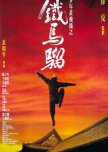
The story was simple. Dr. Yang and his trusty sidekick Miss Orchard tended to the sick during the day and at night robbed from the rich and gave to the poor and downtrodden. Dr. Yang was a cross between Robin Hood and Batman. In walked one of the Ten Tigers of Canton, Wong Kei Ying, and his teenage son Wong Fei Hung (played by Angie Tsang!). Initially at odds, it didn't take long for the two honorable men to recognize what was going on and what needed to be done. Along for the ride was Commissioner Gordon, I mean Master Fox, played by Yuen Shun Yee, who also provided a little comic relief. Team Iron Monkey was ready with fists, kicks, and righteous anger to take on any evil doers! They had to make a grandstand against a corrupt governor, disgraced, evil Shaolin monks, and the governor's boss who was a super powerful ex-monk. There was a little more to it, but that was the gist of the story.
The fights were fast, creative, and fun to watch. All of the good guys had time showing their kung fu stuff. When Yuen Woo Ping is in charge you know you are in for a treat. Donnie Yen has amazing footwork and it was highlighted in several scenes. The majority of this short movie involved fight scenes which would usually be a detriment for me, I enjoy at least some character development, but everyone on Team Iron Monkey was so quick, likeable, and graceful it didn't matter to me in this movie.
There were hints of romance, brief heartwarming moments and cringeless humor (for the most part). The story moved forward at the speed of Donnie's punches.
I scored this movie simply on the sheer joy I received from watching it. People who don't enjoy kung fu movies and wire fu might not enjoy it, but for those who do, this is definitely one to give a try.
Was this review helpful to you?

This review may contain spoilers
There are some movies that are so bad they are good. This wasn't one of them. As much as it pains me to say it, because I love Angela Mao, this movie was awful.The story involved a secret list of rebels (who keeps making these troublesome lists!) and more crisscross double crosses than you could shake a stick at. Few people were as they appeared to be. The most disappointing character was Angela's. No subterfuge with her character, she was just a spiteful jealous woman who jumped to conclusions about her friends and trusted the wrong guy when he was the one she should have been the most suspicious of. Rule #1, never, ever trust the guy in sparkly silver lamé in a kung fu movie.
It didn't help that John Liu's character came across as arrogant and uninteresting. Not a good sign when the male lead was boringly irritating. Chen Sing's Big Bad was really bad, complete with blue hands that could poison people and a great evil laugh. He was actually one of the few highlights of the film.
If the story is weak and convoluted, the fighting better be great. The fight scenes were atrocious in this movie. Stunt men whipped their heads back or fell back before a hit or kick was supposed to connect and the sound effects were completely off at times. Most egregiously John and Angela did this weird kicking pose that in real life would serve no purpose except to leave you horribly exposed. Though John Liu was known for being a super kicker, in this movie he did a lot of kick posing.
One positive was that, as in many Taiwanese movies, they took advantage of filming outdoors with the mountains and trees in the shots. It might well have been because they didn't have the budget for interior sets, but at least the scenery was pretty. I can only imagine how beautiful it would have been in the original cut at the theaters. That's it, that's all I have when it comes to saying something positive about this film.
The story was thread bare, the fights were poorly choreographed, and the sound effects were awful. Sorry kung fu fans, this one did not go in the win column for me.
Was this review helpful to you?
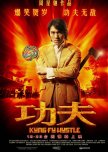
What I loved about it was the cast. It was fun to see the incognito martial arts masters come out of their humdrum lives and reveal what they were capable of. Any time I see Yuen Wah featured, I'm a happy camper.
The Roadrunner and Coyote special effects were over the top and fun for the most part. Although the funniest gag in the whole movie didn't involve any CGI. The closer they kept it to reality, the better I liked it.
The martial arts scenes were entertaining, I enjoyed the early trio's more believable fighting the most. The latter fights which relied more heavily on CGI were comic book style and entertaining in their own way, if less satisfying.
Visually it was a stunning movie, the sets, costumes, and cinematography were well above kung fu movie standards.
I wasn't as fond of the first half of the movie with the death and dismemberment scenes. The landlady's schtick wore thin pretty quickly with me although she redeemed herself in the end. Bruce Leung made for a creepy supernatural kung fu madman. I found Stephen Chow's hustler more annoying than funny for most of the film. When he finally picked a side and came out of his cocoon I could get on board with his character even if his character growth and kung fu skills weren't properly explained. This movie cried out for a hero, not a Chosen One who did nothing to earn his greatness.
Perhaps the biggest problem I had with this movie is that I didn't care about most of the kung fu misfits and the ones I did care about didn't last long. Even in a comedy I need some thread of the story to be emotionally compelling and the only one they really offered was lollipop girl and the hustler which didn't touch me at all. The juxtaposition of slapstick over-the-top humor and brutal over-the-top killings failed to resonate with me as well.
While there were parts of Kung Fu Hustle I found amusing, more often I found it borderline cruel and repetitive with flashes of humor. The trio's fights and the final fight saved this movie for me. Oh, and Yuen Wah getting to strut his badass kung fu self helped a lot, too.
Was this review helpful to you?

There wasn’t much plot. Donnie Yen and Nicholas Tse played two brothers from two mothers. The father’s relationship with the women was not explained. The mother of Dragon, took the oldest brother from the Gate when he was a child. Dragon soon became an orphan when his mother died. A triad leader, Kun, took him in and became a surrogate father to him. The biological father and mother of the younger brother, Tiger, disappeared and an “uncle” raised the youngest at the Gate. The uncle was played by an actor well known to kung fu fans, Yuen Wah.
Here is where I give props to this movie. The brothers, though in rival positions, did not become mortal enemies. A girl was involved with both brothers but no triangle developed. A typical kung fu story unfolded when Shibumi, the Big Bad, decided to take out Dragon’s boss/surrogate father, played by kung fu star Chen Kuan Tai. The bodies started stacking up at this point and the road back to brotherhood was opened up. The brothers were joined along the way by a nunchaku fighter, Turbo.
A liberal use of CGI and wire-work was used but not to the film’s detriment. DTG was like a super hero movie only using kung fu. I found the action scenes, designed by Donnie Yen, to be exciting and entertaining, certainly not realistic, but I grew up on Batman and Superman so this wasn’t much of a leap.
The sets and CGI sets were well done in this unknown time period with advanced phones and bell bottom jeans where cavernous criminal hideouts were buried deep beneath Hong Kong. The costumes were laughably bad. The hairdos were even worse. Poor Donnie had to go through the movie like a sheepdog with his hair down over his eyes most of the time. It did help obscure the fact he’s twenty years older in real life than the actor playing his slightly younger brother.
Donnie had a strong screen presence even with a thinly drawn character. Nicholas’ character seemed less well defined as the “good” brother, but he made the most with what he had to work with. Turbo (Shawn Yue) was largely extraneous and didn’t add a lot to the movie. It really felt like they should have concentrated on the brothers more. Though they didn’t share the screen much, Donnie and Nicholas had nice brotherly chemistry.
There were two female characters as love interests who were largely indistinguishable, one “good”, one “bad”. It was great to see old kung fu guys, Yuen Wah and Chen Guan Tai being used. It made my geeky kung fu heart happy.
If you can check your brain at the door and accept this movie for the comic book come to life that it is, you might find this movie entertaining, I know I did.
Was this review helpful to you?

Amanda/Fream and TJ/Fuffy are the perfect married couple, just without the sex, living together, and marriage license part. They are tactile and completely supportive of each other. The film follows the romantic rollercoasters in their respective lives, especially Amanda's. At the beginning of the movie TJ says he will write her 1001 letters and his narration of them throughout the movie hint he may have had deeper feelings for her, something that is left up to the audience to decide.
Both Amanda and TJ have ups and down in their romantic relationships but the constant source of love and support is their friendship and almost constant banter. Fuffy was handsome, strong, with an unknown source of income, and always there for Fream, he would have tempted any other female lead into succumbing but time and again they stated there was no physical attraction between them, much to the chagrin of Amanda's grandmother.
Secondary characters were barely more than out of focus movement in the background. Fream and Fuffy were the nucleus, without the actors' powerful performances, this movie would have floundered. De Rossi could be manic and comedic in one moment and tearful and vulnerable the next, her performance was the heart of this movie. If she was the energy, Piolo Pascual was the sturdy foundation, given the more difficult role of appearing to be the 2ML in his own movie.
The Philippines setting felt like a character in and of itself. The film used many lush and beautiful locales for the friends' conversations and interactions.
My Amanda isn't a perfect film, and at times it was hard to be sympathetic with Amanda's poor life decisions. Though the story dragged in places the journey to the end was worthwhile. It's a film which doesn't seem to go anywhere, and maybe that was the goal, to show the anchor of love between two friends when storms and change raged around them and whether the anchor could hold and whether it should hold.
Was this review helpful to you?

 54
54 191
191 11
11






















